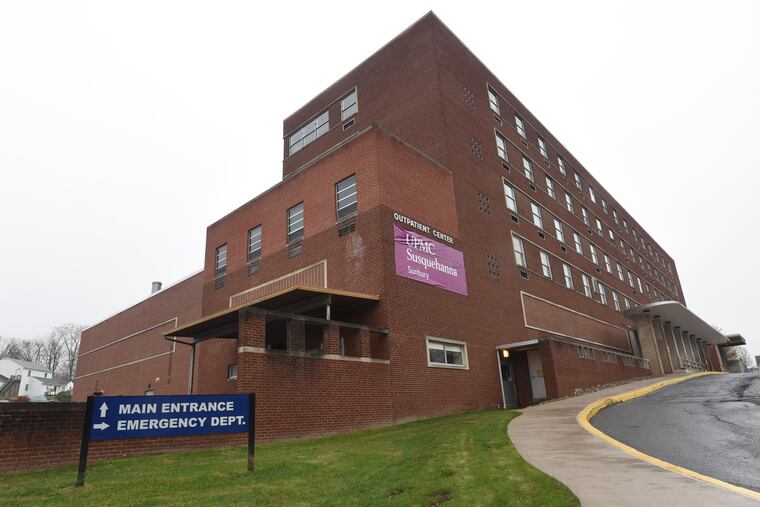Coronavirus hasn’t hit rural Pennsylvania hard yet, but it’s already causing problems
While lower population density is keeping rural America safer at the moment, spotty internet and cell phone services are just two issues that could make dealing with the coronavirus difficult when it finally arrives.

On the map, Forest County is nearly all green, and with about 18 people per square mile, residents were born into social distancing. As of Monday afternoon, there were no coronavirus cases there, or in 29 other, mostly rural, counties in Pennsylvania.
Montgomery County, about 300 miles east of Forest, has 1,655 people per square mile and 129 confirmed cases of the disease.
On March 13, when Gov. Tom Wolf ordered all schools in the commonwealth to be closed, families and educators in Forest County and other rural areas were presented with unique problems. Internet service is often terrible or nonexistent, so the students are just off.
“They basically started summer break. Hopefully, just Easter break,” Amanda Hetrick, superintendent of the Forest Area School District, said last week. “We have areas where there’s no internet or even cell service.”
Hetrick said the school day was already over for the district’s 405 students by the time Wolf made his announcement, meaning many books and supplies were left there. She was hoping some rural districts could get one more week of in-class learning.
“We are exploring the concept of distance learning, which would differ from online learning,” she said. Mailing out assignments, she said, would be costly.
While its inherent social distancing is keeping rural America safer at the moment, spotty internet service is just one issue that could make dealing with the coronavirus difficult when it finally arrives.
COVID-19 hits the elderly hardest, and the average age of rural Pennsylvania residents is 44.1. In urban communities, the average age is 39.
If that older population does get sick, there are fewer health care options, fewer hospitals and beds to take them in. Rural Pennsylvania has lost at least five hospitals since 2012, including a hospital in Sunbury, Northumberland County, that is still slated to close next Tuesday despite the virus.
“Everything is gone and out of the emergency room,” a city administrator there told the Sunbury Daily Item this week.
Barry L. Denk, director of the Center for Rural Pennsylvania in Harrisburg, said seven rural counties in the state have no hospitals. Internet issues make telehealth virtually impossible.
“We have great concern that the real surge from this virus may not hit us for a week or two,” Denk said Thursday.
For rural residents, working remotely presents the same connectivity problems as schooling, Denk said.
In Bradford County, 185 miles north of Philadelphia, County Commissioner Doug McLinko estimates that just one or two of the eight school districts would be able to adequately implement online learning. Six of those districts are among the top 25 employers.
McLinko has been sounding the alarm on rural broadband issues for years, and fears the coronavirus may finally prove why it’s so important.
“That’s why this nonsense with rural broadband is a joke,” McLinko said. “No one is doing a damn thing about it.”
From 2010 to 2018, the number of rural Pennsylvania residents who had the ability to work from home increased 14%, according to Denk. In urban counties, that increase was 46%. Given that the average rural household income of $68,471 is approximately $18,000 less than that of urban households, the problems fall into one another like dominoes.
“To have a savings account to dip into is crucial,” Denk said. “And for some of these folks, it’s just not there.”